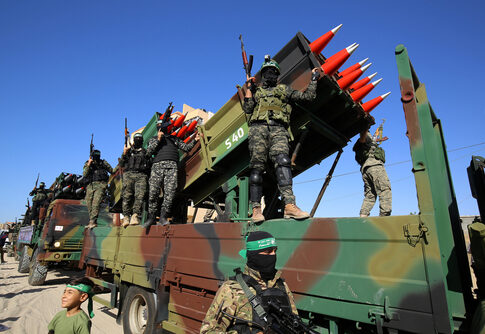Various countries have urged travelers to leave Lebanon as tensions rise.This has caused many anxious people to crowd the Beirut airport. However many airlines have suspended flights due to the Israeli-Hamsas conflict. The region is a hotbed of violence and many are feeling the pressure.
At a Glance
- Travelers surged to Beirut airport as tensions escalated, with countries like France urging citizens to leave Lebanon.
- Hezbollah’s rocket attacks on Israel heighten the conflict.
- Airlines suspend flights to and from Lebanon amidst safety concerns.
- Ongoing violence claims numerous lives, raising global alarms.
Beirut Airport Exodus
Travelers gathered in significant numbers at Beirut-Rafic Hariri International Airport as the situation in Lebanon became more volatile. Many countries, including the US and UK, have advised their citizens to make their way out of Lebanon as the tensions rise in that part of the Middle East.
Travel concerns are compounded by the cancellation of flights from major airlines such as Lufthansa and Air France.Long lines formed at check-in counters as worried expatriates sought any means to leave the region. Travel agencies are becoming inundated by the desire of so many to leave the region.
Security and Safety Concerns
Amid the exodus, recent attacks have fueled anxiety. Hezbollah launched several Katyusha rockets overnight at Israel. Concurrently, Palestinian-led attacks and resultant security operations have led to tragic fatalities and numerous injuries, deepening the humanitarian crisis faced in the region. This violence is causing many governments to call for restraint on the part of all involved.
“France did so Sunday, warning of ‘a highly volatile’ situation, while the US embassy in Lebanon a day earlier urged its citizens to leave on ‘any ticket available.”
Passengers wait to board at an unusually empty airport in Beirut, while several airlines have cancelled their flights due to numerous “Israeli” strikes. Some countries have called on their nationals to leave Lebanon because of the rapidly deteriorating security situation. pic.twitter.com/6eEo7DEXAa
— Roya News English (@RoyaNewsEnglish) September 29, 2024
Impact on Travel and Economy
Besides travel issues occurring, the economy of Lebanon is affected by the airport’s closure limiting monies from being transacted and increasing logistical challenges. Despite Beirut airport maintaining operations, fears of military escalation remain high.
With most flights out of Beirut cancelled, many people trying to flee violence between Israel and Hezbollah are stuck at Beirut airport pic.twitter.com/QizeyzDRbR
— The National (@TheNationalNews) September 30, 2024
“I’m not happy to leave. I wanted to spend the whole summer in Lebanon then go back to work” in France, said Joelle Sfeir from the crowded departures hall at Beirut airport.
As the crisis continues to grow the affects cross regional borders, eliciting political, humanitarian, and economic responses worldwide. As airlines navigate through policy changes and tactical risks, the true scale of the conflict’s impact on Lebanon’s future remains speculative.


